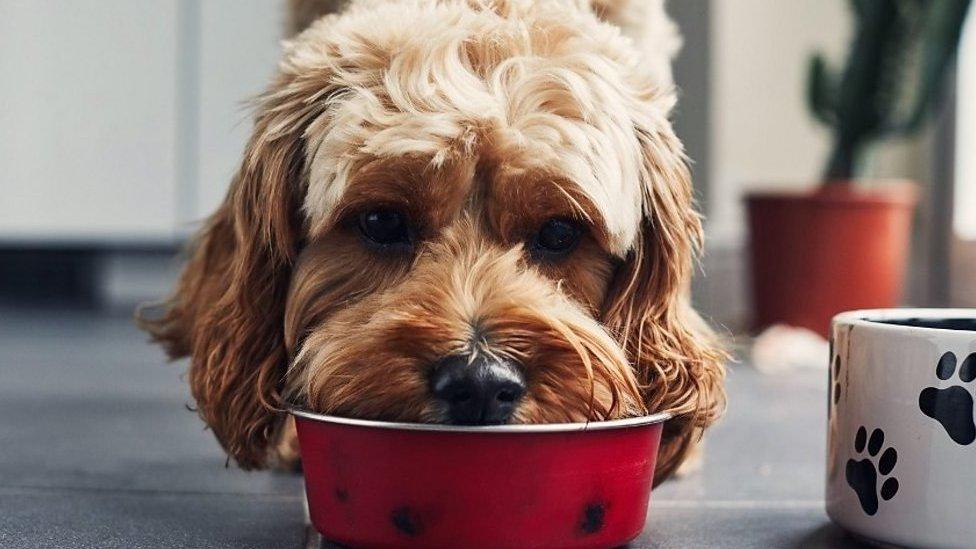Inside the ice cream van feeding Liverpool's families
- Published
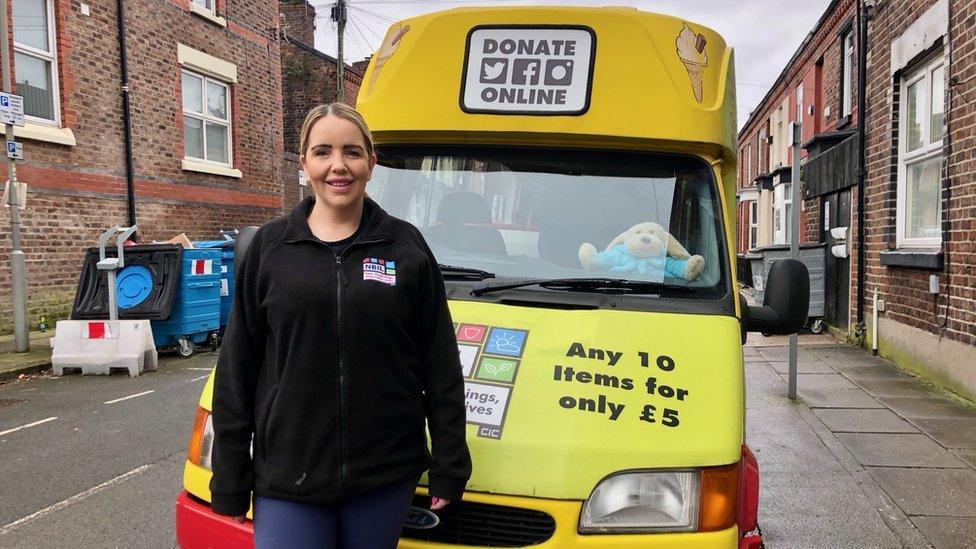
Michelle Roach set up the project nearly two years ago
Like most ice cream vans, it attracts quite a queue.
More than a dozen people, many parents with young children, are waiting in the drizzle outside a charity shop in Liverpool for the yellow truck to arrive.
Instead of ice creams and lollies, its chillers are stocked with frozen food, its shelves with soup, toiletries and vegetables at lower prices than in supermarkets.
"The van has made a massive difference to a lot of people. No-one judges you here. It helps me a lot to have extra food in the cupboards in the middle of the week," says Kimberley Rumble, 20, waiting with her seven-week-old baby.
"We went to the shop over the road the other day. It was £20 for a tub of formula. It's extortionate to buy anything at the moment."
For pensioner Kevin Crilly, 69, a retired taxi driver, queuing with his dog, Rosie, the ice cream van is a "godsend".
"To people on low incomes like myself it's brilliant because it also gives you a sense of community, gives you the chance to come out and meet people."
The van is the brainchild of Michelle Roach, 37, a single mother who set up community interest company New Beginnings, Improving Lives just before the pandemic.
She also runs a community store, mental health support groups and an emergency food bank.
She wanted the ice cream van - thought to be the only one operating as a food pantry in England - to be something "approachable" that customers would be happy to go to.
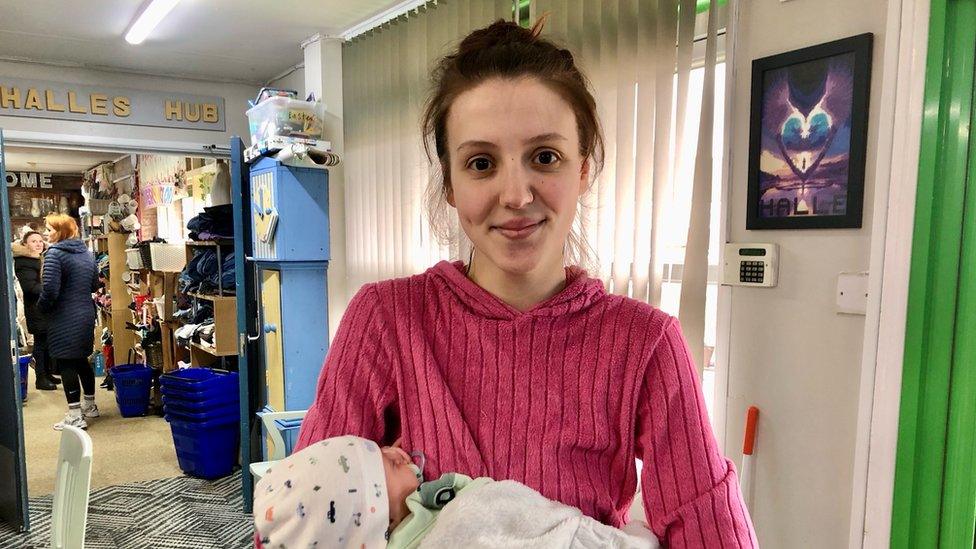
Kimberley Rumble says the van has made a massive difference to a lot of people
"Dignity is number one for us and we want people to not be shy approaching the van, to not feel embarrassed. People have good memories of ice cream vans," Michelle says.
Repurposed after a lifetime selling cold treats, the 30-year-old van visits some of the city's most deprived areas selling surplus food from supermarkets and donations at low prices.
Since its launch in August 2022, it has fed almost 30,000 people.
Michelle was inspired to launch the project because of her own experience living on the breadline. When her son was seven months old, she was diagnosed with cancer and had already been made unemployed.
She says she wanted to make sure no-one else would face the "awful hardship" she went through.
"We had times when we couldn't afford bread," she says.
"We had days when we had no electricity or gas. It was really, really tough so I do understand how people are feeling."
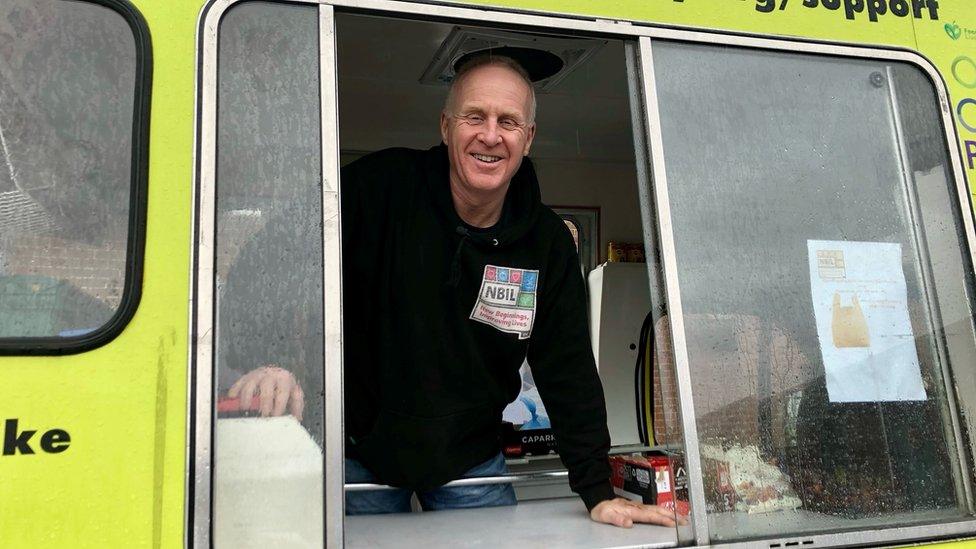
The van's driver Morlan Carr now volunteers after needing help from the service
The van's driver Morlan Carr, 56, has also known tough times.
He came to New Beginnings looking for help with "only a couple of pounds" in his pocket. He then became a volunteer and has been driving the ice cream van to its weekly delivery stops for the last 15 months.
"I I know what it's like not to have any food in. There's a few times I've been late if the van doesn't start and people have phoned up New Beginnings and asked where I am and that's when it's obvious that they are desperate for you to turn up."
Despite its success, Michelle is "very, very worried" about the future of the ice cream van.
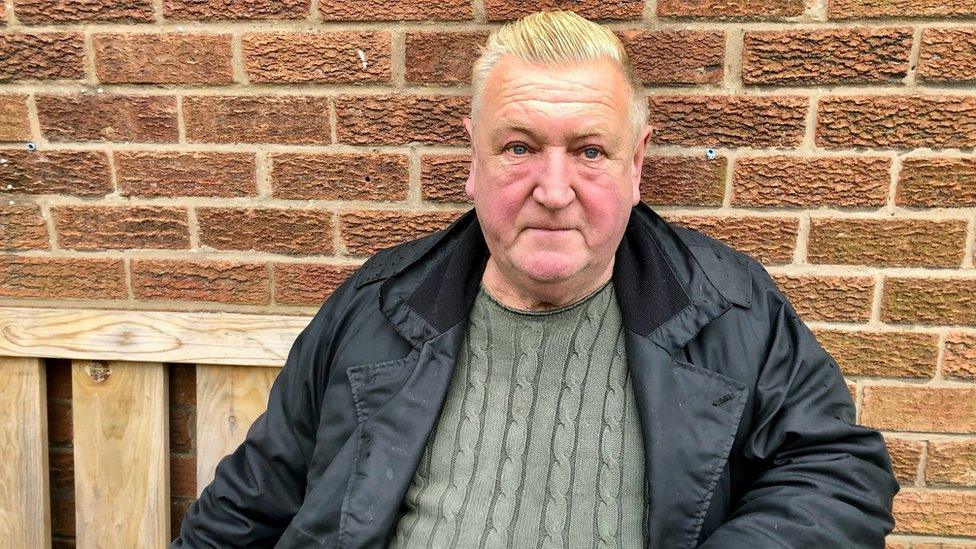
Kevin Crilly says the van is a "godsend"
New Beginnings relies on the Household Support Fund, a government grant given to local authorities which distribute it to families in need and groups that help them.
The government has renewed it for six months but there has been no commitment to extend it beyond the autumn.
The Department of Work and Pensions has said it will keep the fund "under review".
Michelle fears she may have to cut services or one of New Beginning's schemes without the money which "doesn't bear thinking about".
Before the ice cream van prepares to go back and restock, it makes its final sale - with some jelly babies thrown in - to a mum with her two-year-old daughter.
She has been coming since it first started and asks to remain anonymous. If the van stopped running she says her family would have to "go without".
"It's a lifeline. It is. I work and I've got four kids and they eat me out of house and home so by Tuesday my weekly shop's gone.
"My mortgage doubled last March - it went from £600 to £1,200 a month - so that's extra money you've just got to find. So this van, it really does help."

Why not follow BBC Merseyside on Facebook, external, X, external and Instagram, external? You can also send story ideas to northwest.newsonline@bbc.co.uk, external
Related topics
- Published14 March 2024
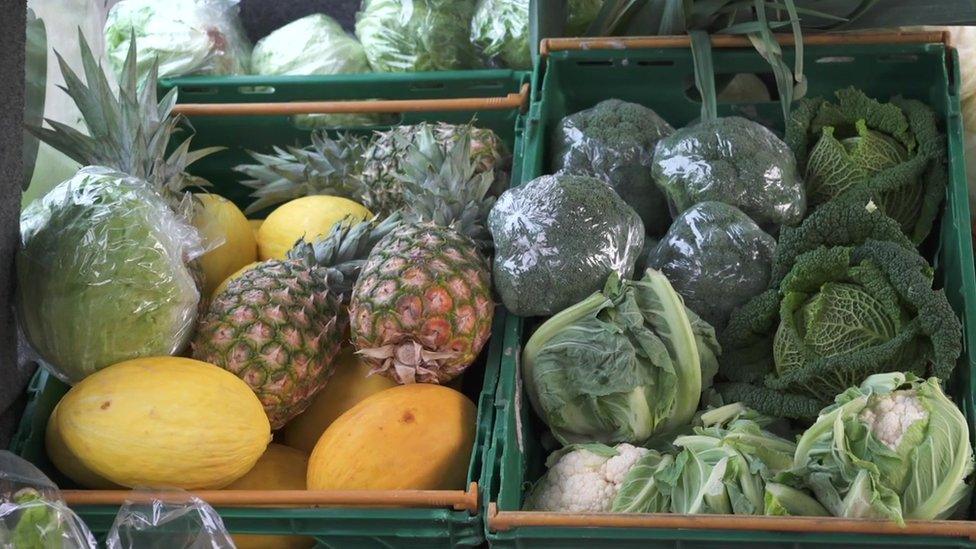
- Published12 March 2024
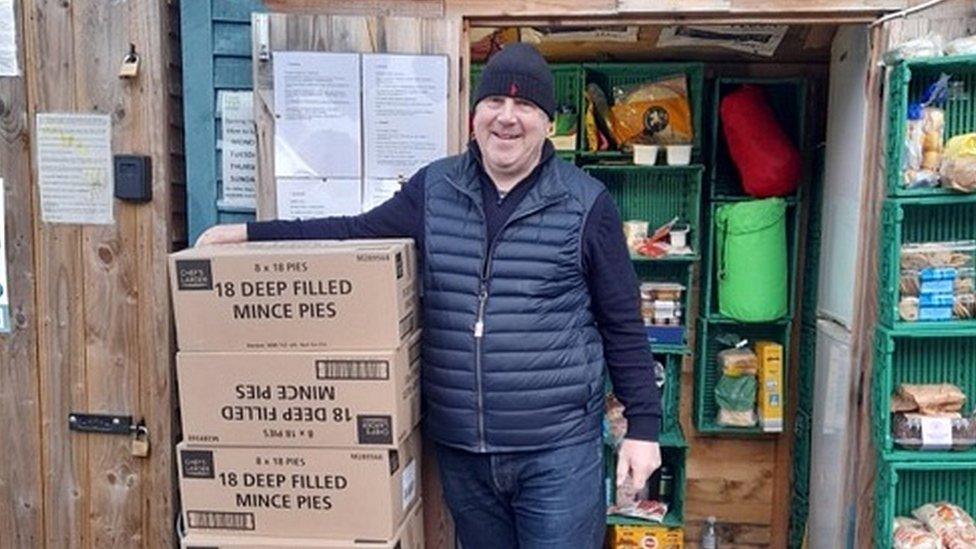
- Published9 February 2024
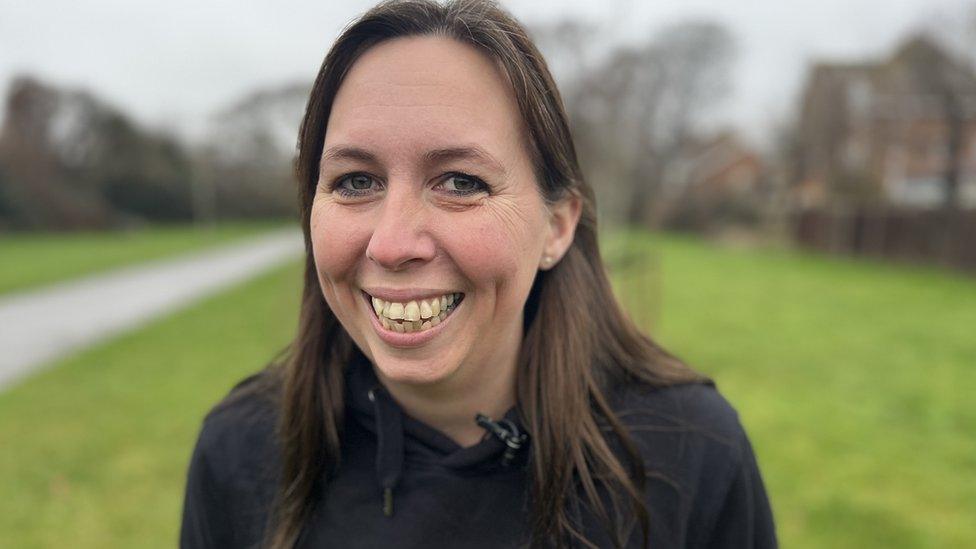
- Published23 January 2024
